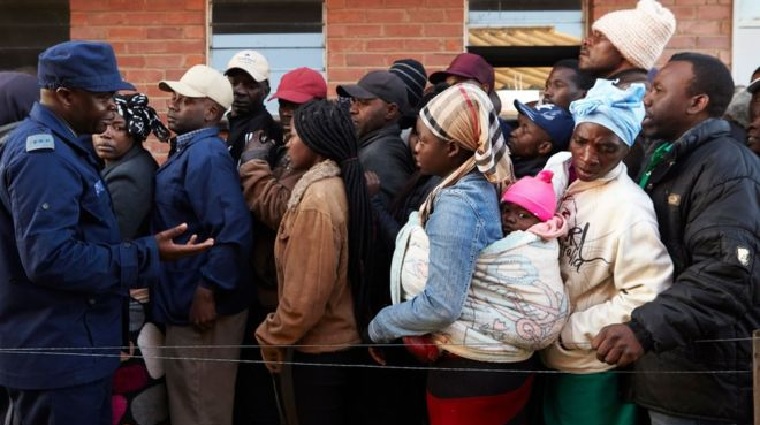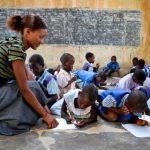In Africa though, strong relationships can be observed. Using both the EIU and V-Dem index scores in 2019, nine countries ranked as the top 10 African democracies have a very high, high or medium human development score. (Mauritius is very high, Seychelles, Botswana, South Africa and Tunisia are high, and São Tomé & Príncipe, Ghana and Namibia are medium.)
And except for Madagascar, all countries ranked as the top 10 democracies by at least one of the two indexes are middle-income countries, with Seychelles being a high-income country.
In terms of poverty reduction, less than 3% of Mauritius, Seychelles, Cabo Verde and Tunisia’s populations live on under US$1.90 a day. Ghana, Botswana, Namibia and South Africa have a US$1.90 poverty rate of 9.7%, 11.8%, 17.1% and 17.2% of their populations respectively.
How then do we explain why some countries ranked as democratic perform very poorly on development indexes? States like Lesotho, Senegal and Madagascar all score low on human development. In fact, in 2019, 73.2% of Madagascar’s population lived on less than US$1.90 a day. For Lesotho and Senegal, this is 36.4% and 29.7% respectively.
The difference in the development rate in these countries can be attributed to their level of governance. Democratic states such as Seychelles, Mauritius, Cabo Verde and Botswana have high scores on governance indexes and are also more developed. On the other hand, democratic countries such as Madagascar and Lesotho, which perform poorer on such indexes, have low development.
This suggests that good governance may serve as an intervening factor between democracy and development. Good governance in the form of rule of law and justice, accountability, transparency and anti-corruption, is necessary to drive growth.
Could there be alternative routes to development? Does autocracy yield the desired results? Comparing the 10 worst African democracies using the above indexes reveals an interesting relationship between authoritarian regimes and levels of development.
Most at the bottom of the democratic indexes are low-income countries (Guinea-Bissau, Eritrea, Burundi, Chad, CAR, Democratic Republic of the Congo (DRC), Somalia, Congo and South Sudan). And they have low human development (Djibouti, Sudan, Guinea-Bissau, Eritrea, Burundi, Chad, CAR, DRC, Somalia and South Sudan).
Indeed, states such as Somalia, Burundi, CAR, DRC, Guinea-Bissau, Chad and South Sudan – which are at the bottom of democracy indexes – are also at the bottom of governance and development indexes. Over 70% of people in South Sudan, the DRC, CAR and Burundi live below the poverty line of US$1.90 a day.
Likewise, Guinea-Bissau, Congo, Somalia and Chad have a high poverty rate. In addition to their poor governance, another common feature is years of political instability. So authoritarian regimes coupled with instability, poor leadership and weak governance produce the worst outcomes for development.
There are a few exceptions in which authoritarian regimes appear to perform better on development indexes. Countries like Libya, Equatorial Guinea and Algeria, which are highly undemocratic, have performed better on development. They are middle-income and have high human development indexes and poverty rates of less than 2%.
So irrespective of the regime type, good governance promotes development. Visionary leadership and strong institutions are Africa’s surest pathway to achieving sustainable development. This means that democratic states should focus not just on elections, but on achieving good governance.
By Enoch Randy Aikins for ISS
(84 VIEWS)


